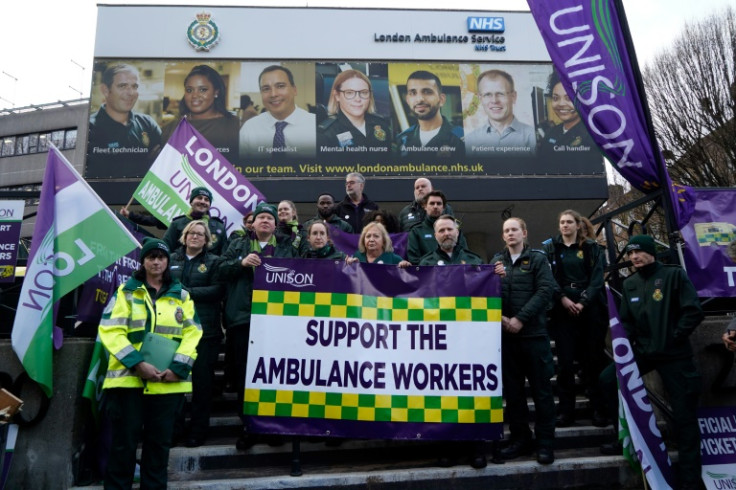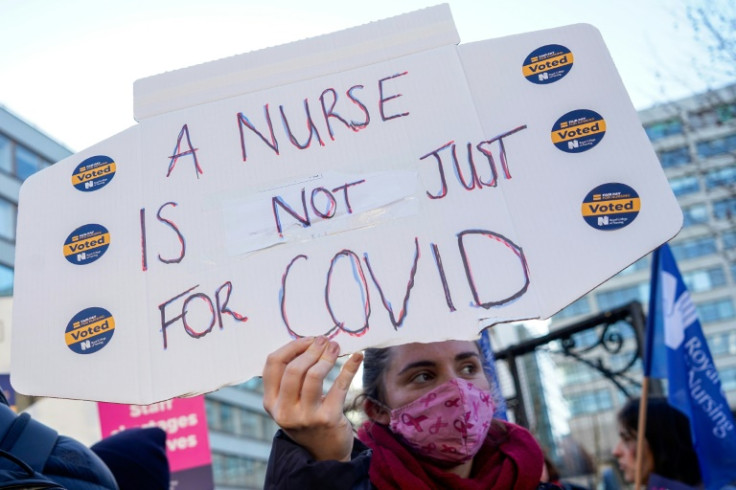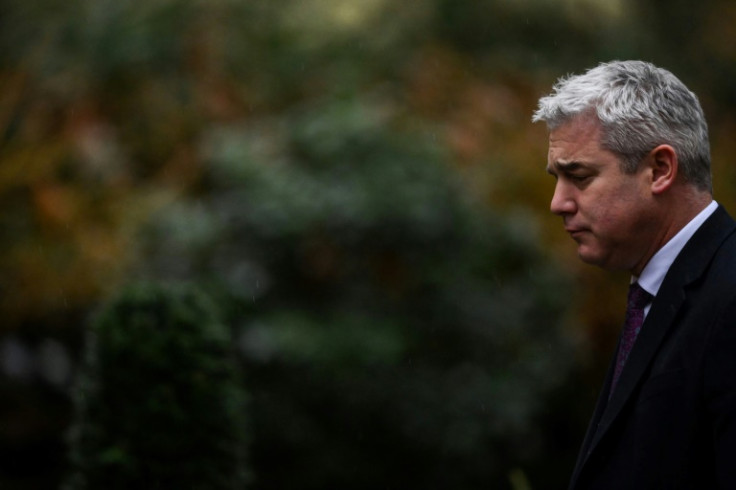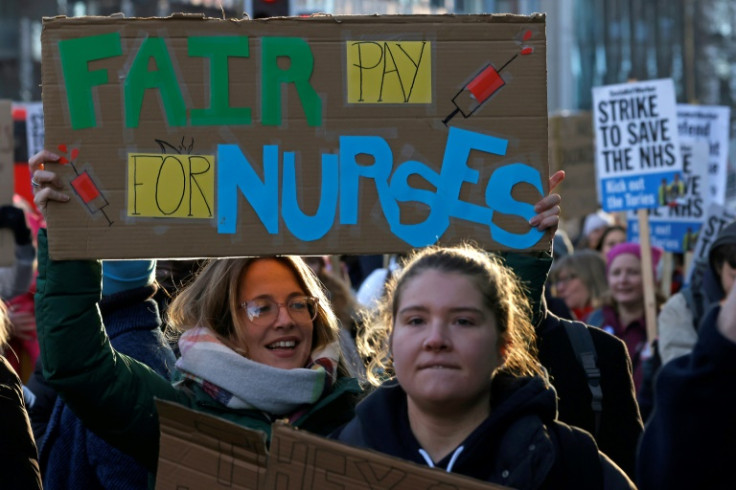Nurses in England stage new walk-out over pay
The main nursing union accuses the government of failing to negotiate seriously on improving their pay deal for the current year.

Nurses across England staged the first of two new days of strikes over pay on Wednesday, threatening fresh disruption for patients in the creaking state-run health service, as new figures showed inflation still surging.
The 48-hour walkout came after nurses held their union's first stoppage in over a century last month, joining a wave of industrial action by UK public sector workers hit by a cost-of-living crisis driven by spiralling prices.
The latest annual inflation statistics, released early Wednesday, remained close to record highs, with rates easing slightly in December to 10.5 percent.

The main nursing union accuses the government of failing to negotiate seriously on improving their pay deal for the current year, which they say is crucial given the economic situation.
On Wednesday afternoon, around 100 demonstrators, including many nurses, marched in protest to Downing Street in central London.
Janet Maiden, 59, a senior nurse at University College London Hospital, said the National Health Service (NHS) was enduring the worst crisis of her long career.
She held a handwritten sign saying: "Patients are not suffering because nurses are striking. Nurses are striking because patients are suffering."

"If we don't make it a more attractive job, we're not going to recruit enough nurses," said another protester, 26-year-old care assistant Fiona Boxford, who intends to train as a nurse.
"Without a decent wage, you just have to work so many shifts. You end up just having no life. You just work yourself ragged."
The latest walkout piles further pressure on the NHS at a time of peak demand due to winter illnesses and lengthening waiting lists for treatment caused by Covid cancellations and under-staffing.
Further strikes are planned for February 6 and 7 by the Royal College of Nursing (RCN) union, which has said they will "be at the highest intensity" in its history.
The GMB union representing ambulance workers and paramedics in England and Wales has announced six new dates for industrial action, also including February 6, making serious disruption likely.
Conservative Prime Minister Rishi Sunak has insisted recession-hit Britain cannot afford to reopen public sector pay already set for this fiscal year, which ends on March 31.
He has hinted at the possibility of more flexibility in agreeing upcoming salary deals.
"Unaffordable pay hikes will mean cutting patient care and stoking the inflation that would make us all poorer," health minister Steve Barclay wrote in The Independent on Wednesday.

He added that salary increases would "take billions of pounds away from where we need it most".
Two separate days of strikes by nurses in England and Wales in December led to the cancellation of some 30,000 elective procedures and outpatient appointments, according to Barclay.
But RCN union head Pat Cullen said nurses are "the voice of the patient" and has repeatedly urged the government to negotiate over pay to retain beleaguered staff and attract new recruits.
"Let's all get into a room and sit down and have realistic conversations about how we're going to address the crisis within the health service," she told ITV.
This week's walkout could cause 4,500 cancelled operations and 25,000 cancelled outpatient appointments, the NHS estimates.
Despite the disruption, the nurses' plight has prompted public sympathy amid broad discontent over the government's management of the NHS.
A YouGov poll published on Tuesday suggested 63 percent supported their strike.
"We go to work every day as nurses and we do our best, and our best isn't enough right now, and that's because our workload keeps increasing and our resources aren't matching that," said Accident and Emergency nurse Orla Dooley, 29.
"If I was to retrain today, I wouldn't be a nurse. It's something I used to love, and that's really sad," she told AFP on a picket line outside a south London hospital.
In response to the months-long waves of strikes, Sunak has introduced a draft law requiring some frontline workers to maintain a minimum level of service during walkouts.
MPs gave their initial backing Monday to the controversial legislation, which has prompted fury from unions.
"The government has gone from clapping NHS workers during the pandemic, to ignoring them, insulting them, and now threatening them with the sack if they fight for decent pay," Unite union general secretary Sharon Graham said Wednesday.
Sunak defended the plans in parliament as "reasonable" and in line with other European countries.
© Copyright AFP 2025. All rights reserved.





















